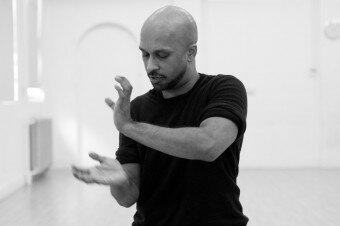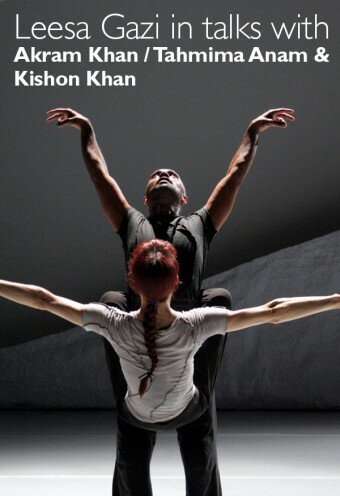As things happen in this wonderful country of ours. Problems come up and solutions emerge. Everything is now under control. We are working flat out and a fabulous show is on offer!
Just held the first copy of the book ‘Muslin, Our Story’ in my hand and the book looks absolutely fabulous! We only have a few copies for the opening, but the rest are arriving by ship. Book your copies now. They are selling like hot cakes. Boy do we have a show on our hands!
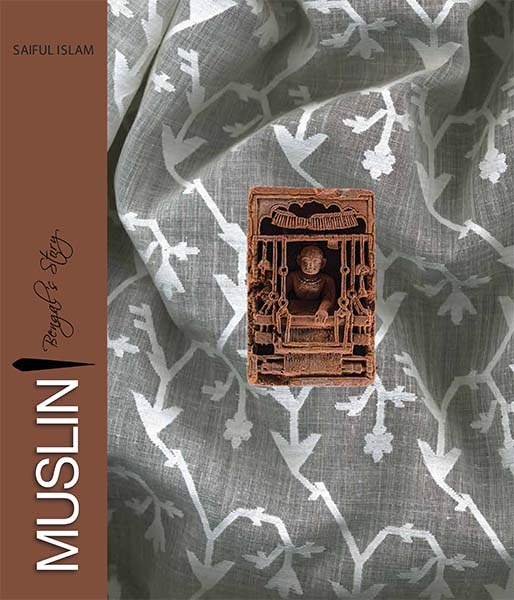
Tag: fashion
Bangladesh extravaganza in London
|
Bangladesh: Past Present Future
-
EXHIBITIONS | FASHION | WORKSHOPS | ADDA | MUSIC
An unmissable chance to discover and explore the rich culture and creativity of Bangladesh and its new directions. From 22nd to 24th February at the Bargehouse London SE1 9PH
Bangladesh Oitij-jo Past Present Future
-
EXHIBITIONS | FASHION SHOWS | WORKSHOPS | ADDA | MUSIC | UNIQUE SHOPPING
An unmissable chance to discover and explore the rich culture and creativity of Bangladesh and its new directions. From 22nd to 24th February at the Bargehouse London SE1 9PH
| OITIJ-JO| FEBRUARY 22-24 | BARGEHOUSE | LONDON | SE1 9PH
London?s South Bank will play host to the UK?s biggest and most vibrant showcase of Bangladeshi creativity next month when a three-day celebration of art, craft, design, fabrics, fashion, literature and music takes place at the Bargehouse from Friday 22 to Sunday 24 February. |
The cost of cheap clothes

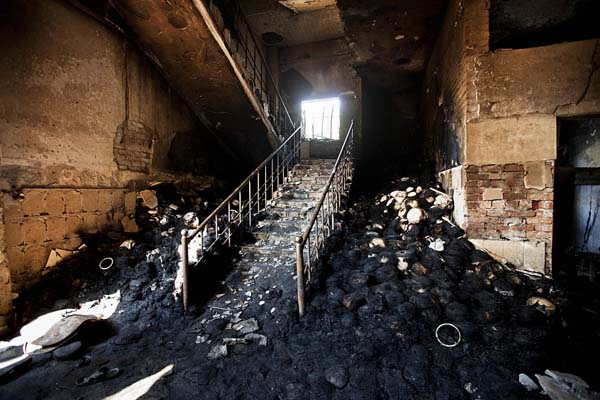
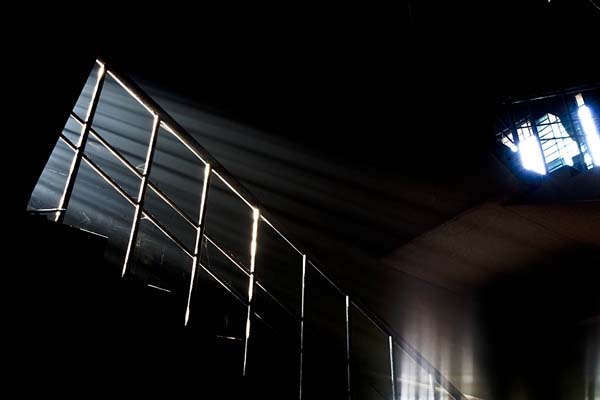
OBITUARY: PRABUDDHA DASGUPTA
By Aveek Sen: The Telegraph
Prabuddha and I were both intrigued by Leonard Cohen?s ?Famous Blue Raincoat?. What is going on, in that song, between three people who seem to be connected to one another by life, longing, and a sadness that looks beyond regrets at something truly mysterious? Trying to figure that out broke the ice between him and me when we first met properly in Goa last year. There was a strange mix of shyness and awkwardness between us. The awkwardness was mine: I was meeting someone about whose latest book I had been critical in a review. And the shyness was his. But I?m glad today that it never quite went away even after we became deeply fond of each other in no time. For me, Prabuddha?s shyness was his truest, and most attractive, quality. There was nothing covertly manipulative or falsely modest about it. It was a genuinely humble, yet peculiarly self-assured, acceptance of his own vulnerability and unsureness as, first, a human being and then, an artist. It was like a gift that he was bringing to you, and if you received it, it settled into a combination of gentleness, affection and trust. It was what kept him and his work remarkably young and open. |
The light on the rooftops
Subscribe to ShahidulNews
![]()
Choto Khalu (little uncle) was the likeable sort of uncle you could tease, and tease him we would. About being the fashionable one in the family. About using a knife and fork, when the rest of us would use our hands. About insisting on the interior d?cor in his house being just right. About his fancy stereo set. About being a dandy.
We were scared of Choto Khala (little aunt) when we were kids, and were surprised when we saw pictures of her, all trendy and hip, with her braided hair in front, sometimes on a bicycle. The outgoing young woman in the photographs didn?t seem as scary as we had imagined. My uncle enjoyed music, fine food, photography, reading, and their life seemed much less mundane than ours. We would giggle at how ?modern? this couple was. A word that had risqu? overtones in those days.
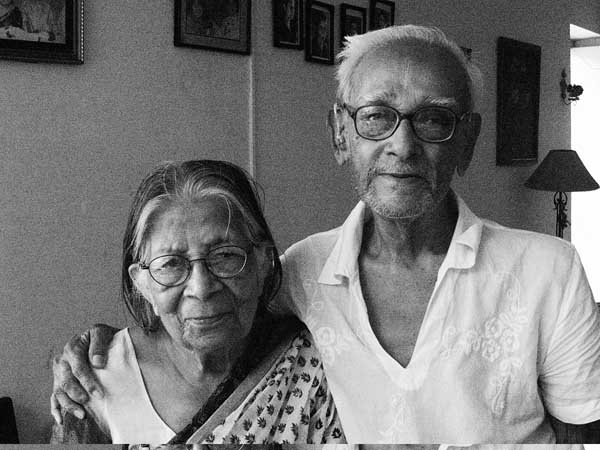
He was my Abba?s (dad?s) best friend. Marrying my mother?s younger sister, was perhaps a way to strengthen their friendship, but this fashion conscious young man also had an eye for good looks, and had chosen well. They were the perfect couple. They lived in Azimpur 66A, we were on the floor above, Flat 66C. Besides using their garden to raise my chicken, ducks and turtles, wandering through their flat on the way to the garden, was a treat for a young boy. Even in those low income days, Choto Khala and Khalu, found ways to make their modest home stand out from others. My special treat was to listen to ?The Laughing Policeman? on his fancy stereo set.
As one of the few Muslims who had made it to Calcutta Medical College, their friendship went back a long way. Choto Khalu had sought out my dad, known for his academic brilliance. They had crossed over in 1946 to Mymensingh, gauging the scene well to leave the day before the riots, and had taken up teaching together. Partition followed and they never went back. As young professors, my dad, the studious academic, and my uncle the debonair doctor, must have made quite a pair. Both couples went to Britain for further training. My dad stayed back to teach upon return. My uncle made a return visit to Newcastle to complete his PhD.
Choto Khalu was easily the more outgoing of the two. Abba concentrated on his research, developing Monsur?s Media (named after him), and setting up the School of Tropical Medicine. Choto Khalu meanwhile became president of the Pakistan Medical Association and the Commonwealth Medical Association. He had been awarded the Gonoshasthaya Kendra (GK) Medal for the ?Favourite Teacher? in 2007.
On hearing of this death, the founder of GK, Dr. Zafrullah Chowdhury commented, ?Professor SIMG Mannan holds many laurels for teaching a most difficult subject – anatomy with great ease and humour. He is the first Asian whose name is recorded in the medical bible Grey’s Anatomy for his discovery of pascinian corpuscles. Yet he would always advise us to read Last’s Illustrated Anatomy as it would be easier for us to grasp. His refrain with us was ?serving humanity is much more important than the nitty-gritty of anatomy.?
It is ironic that the Bangladesh Medical Association in 1991 cancelled the membership of Professor Mannan, an erstwhile President of the Pakistan Medical Association and the Commonwealth Medical Association because of his participation in the formulation of the National Health Policy of 1990. His call for universal coverage of health care and the prohibition of private practice by government employed doctors to be compensated by 200% increase in salaries and extension of retirement age to 60-65 years was the cause of this wrath.
He knew all his students by name and attended to each student’s needs and difficulties. Great loss for me personally.”
My interactions with Choto Khalu involved kibitzing their bridge games, occasionally discussing poetry, and at a later stage, photography. His backlit black and whites were no accidental family snap shots. While others in the family valued fame and success, it was he, who was curious about my work and appreciated the craftsmanship. When the Royal Photographic Society made me an honorary fellow, it was Choto Khalu who reminded everyone of what an honour it was. An artist trapped in a scientist?s body, he continued to indulge in non-material pursuits that his peers found frivolous. He insisted there was more to life than mere living.
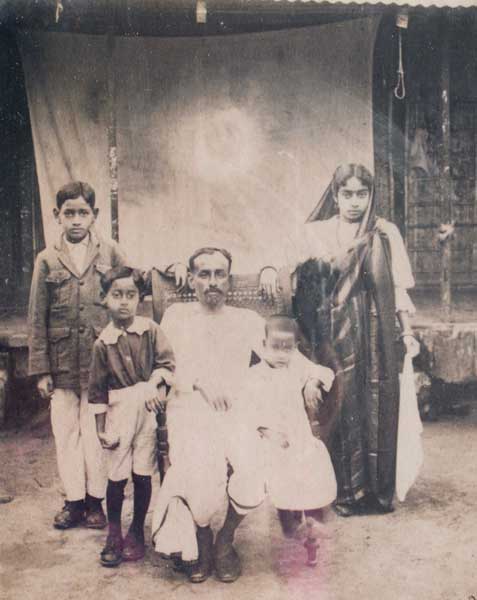
Apart from when Abba died, it was over a photograph that I saw him grieve. Taking down an old framed image from the wall, he shook as he said, ?She was alive then. But couldn?t be in the photograph. She was there, standing behind the curtain. Had I been more aware, I would have dragged her out, to be photographed with the rest of us. She had never been photographed.? His mother died when he was eight. Still never photographed.
It was the day before Eid that Rahnuma and I went to visit them. Rahnuma had carefully chosen the books for them. Choto Khalu kept talking about the books, about how much he would enjoy them. Taking us by turn, he took us to their little verandah. ?See when the late afternoon light hits the rooftops. When that slanting light hits the edges. Just before the sun sets. That?s when I stand here watching the light. The road in front with all those trees. It must be so wonderful to walk through. They are so lucky, the ones who live in the house with the slanting tiled roof. I wonder who live there. Have never seen them on that lovely roof.? Even at 93, the joy of life had never ebbed.
Ignoring Rahnuma?s pleas that I was getting too fat, he insisted on me eating the sweets that we had brought. Then he spoke about the light again and how much he?d enjoy the books.
Unusually for them, they came out to the lift, both waving as the gates began to close. Rahnuma and I looked at each other and said nothing. It was the following night, on Eid, that my sister Najma, rang to say he?d been taken to the hospital. They were already there when I arrived in the morning. It was a different Choto Khalu. One with pipes and catheters and strapped to monitors. A body stuck to machines had replaced my uncle. I would go to see him late at night. It was after visiting hours, but the hospital staff didn?t mind. I would just be with him on my own. Stroking his forehead, waiting for a sign. He was too far gone to respond, but I felt he knew. The doctor on duty asked who the decision maker was. I knew what that meant. I spoke to my sister, and we agreed to have a ?meeting? in the morning. She later rang back to say, perhaps we wouldn?t need to. In the morning she rang to confirm that we didn?t.
It was still morning, but many people had already dropped in as he lay in the coffin in their flat in Banani. Old doctor friends, students, family. I remembered feeling proud when people like the former Bangladeshi president Badruddoza Chowdhury and other prominent doctors mentioned they had been mentored by Abba and Choto Khalu. Today when the ex president came to pay his last respects, all he did was to call us together to lead us in prayer.
Tonight, as I look out of my window to see the orange moon, and call Rahnuma over to see it, I wonder if Choto Khalu is watching the moonlight dancing on the rooftops. I have a feeling he is.




